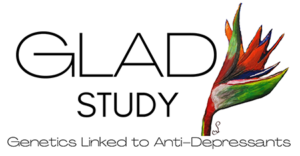POSTVenTT
A prospective audit of anaemia after major surgery
Anaemia affects nearly a quarter of the world and is common in surgical patients with a third of patients presenting with preoperative anaemia and three quarters of patients discharged from hospital with anaemia. The World Health Organisation defines anaemia as an insufficient circulating red cell mass, with a haemoglobin (Hb) concentration of < 130 g.l−1 for men and < 120 g.l−1 for women.
Perioperative anaemia is associated with increased postoperative complications and delayed patient recovery leading to increased post-operative morbidity and mortality. Anaemia also leads to an increased use of allogeneic blood transfusions7-10, which is an independent risk for poorer patient outcomes.
Postoperative anaemia can be due to blood loss at operation or secondary to the inflammatory process associated with surgery, which causes an increase in hepcidin production resulting in functional iron deficiency and reduced red cell production.
In recent years, there has been a significant increase in the use of intravenous iron therapy for preoperative anaemia in line with major international guidelines. This is common practice in Australia and New Zealand.
The POSTVenTT (POST operative Variability in anaemia Treatment and Transfusion) audit aims to increase our understanding of variability in adherence to anaemia management guidelines and to assess the impact of anaemia management in clinical care following major surgery.

The number of Australians living with depression that does not respond to medications could halve if a new WA study confirms that gene-based treatment for depression is more effective than current methods.
Working in conjunction with Meeting for Minds SYNERGIES, the GLAD project involves people with lived experience of mental illness (PLEX) as research partners. SYNERGIES is a new way of approaching research, bringing together researchers and PLEX, so that those who stand to gain the most from the benefits of the research are involved as respected contributors.
This study is a clinical trial conducted by The University of Western Australia’s Young Lives Matter Foundation into the use of pharmacogenomics (PG) to understand how a person’s genetic make-up influences how they metabolise medication). This trial will analyse whether PG-guided treatment is more effective than today’s widely adopted ‘trial and error’ approach.
